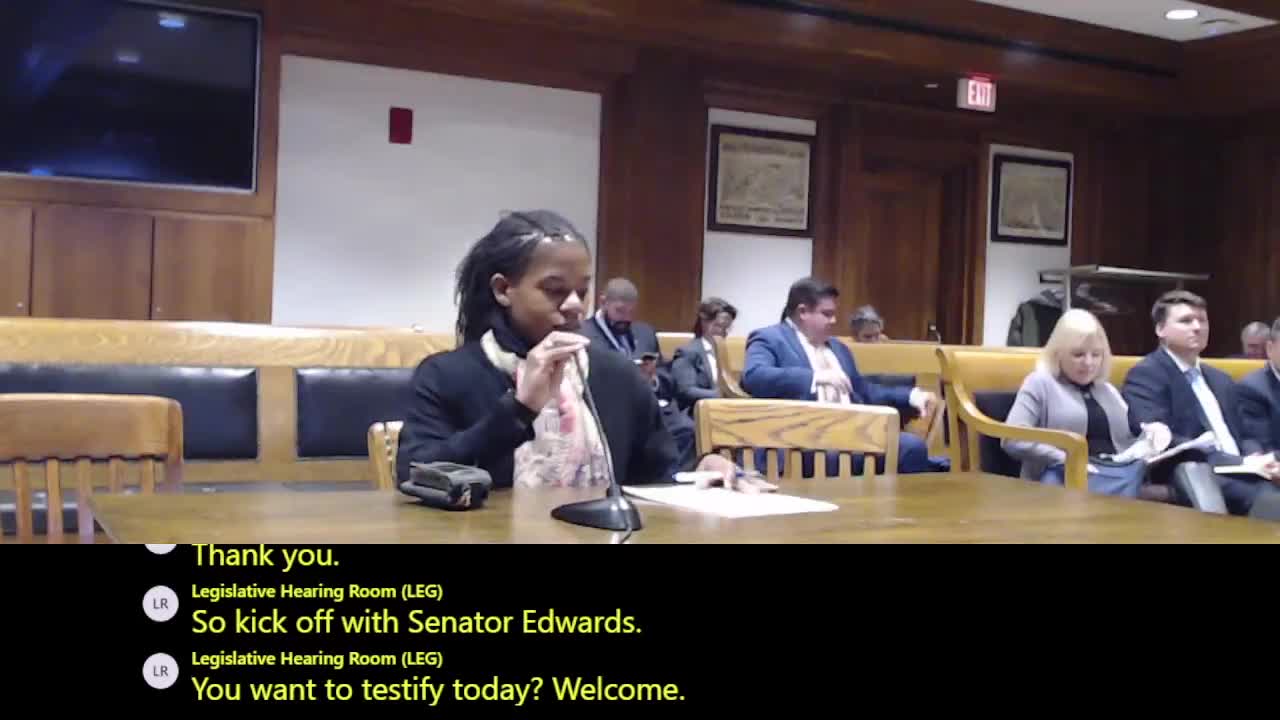Lawmakers hear proposals to classify delivery app drivers as employees and add small delivery surcharge
Get AI-powered insights, summaries, and transcripts
Subscribe
Summary
At a State House hearing, supporters urged lawmakers to treat app-based food delivery drivers as employees, require pay and mileage protections, and add a small per-delivery surcharge split between municipalities and the commonwealth to fund local and state priorities.
Senator Edwards told a joint legislative hearing that she was testifying on two bills aimed at the app-based delivery industry, saying the measures "affirm employee standards and, pay. It ensures mileage reimbursement." The bills focus on delivery drivers, she said, who increasingly work full time on platforms such as Instacart and Uber Eats.
The proposal discussed includes House Bill H1339 (Vargas) and a Senate companion, S1305, described by Edwards as "an act establishing protections and accountability for DNC workers, consumers, and communities." Edwards said the bills would make clear that many delivery drivers qualify as employees, ensure mileage reimbursement and wage standards, and create a level playing field so app companies do not undercut brick-and-mortar operations already bound by employment rules.
Supporters, including Kevin Russo of the Massachusetts AFL-CIO, argued the measure would extend long-standing worker protections under Massachusetts’ ABC test to delivery network companies and require data transparency and a process to challenge app deactivations. "H1339 not only reaffirms the employment status of delivery drivers, but for the first time establishes state regulations for delivery network companies," Russo said. He added the bill would require companies to disclose what they pay workers and to create a process for drivers to contest deactivation decisions.
Edwards also proposed a small surcharge on app-based deliveries modeled on an existing surcharge collected from transportation network company rides. "We're already doing it when it comes to transportation. Let's do it when it comes to food delivery," Edwards said, describing a per-ride surcharge split between municipalities and the commonwealth. She characterized the surcharge as modest — for example, lower for food and groceries and higher for deliveries of alcohol or cannabis — and argued the revenue could fund local economic development or environmental protections.
Supporters framed the package as balancing worker protections, consumer safeguards, and revenue generation without imposing a substantial cost on riders or shoppers. "No one's gonna not have their Uber Eats for 40 cents," Edwards said, arguing that modest surcharges could raise meaningful revenue for municipalities and the state.
There was no formal committee action on the bills at the hearing. Witnesses said they would submit written testimony and data to the committee for further consideration.
Ending: The hearing collected testimony from labor groups, legislators and planning organizations and will be followed by written submissions and committee deliberations; sponsors and advocates asked members to report the bills favorably so the Legislature can consider the worker protections and surcharge proposals in more detail.
